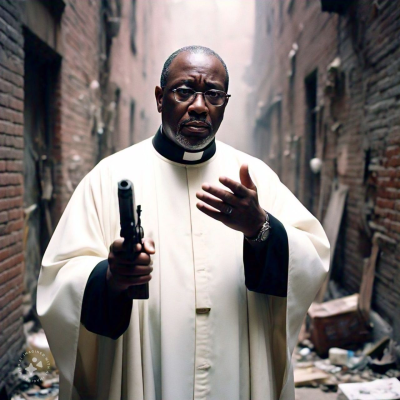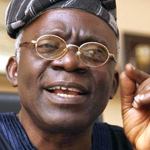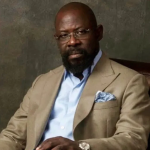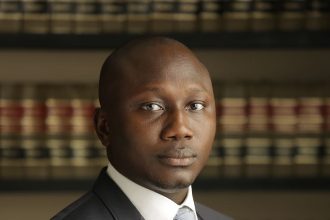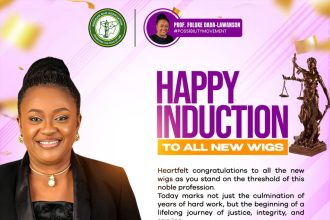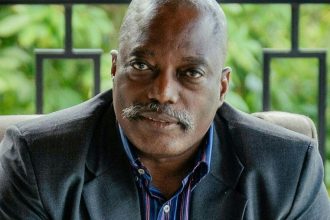In a tragic incident that has shaken the faith of many, a Catholic priest in Imo State, southern Nigeria, has been implicated in the shooting death of a parishioner on December 31, 2024.
This event, which occurred during an end-of-the-year church activity, has sparked a crisis of faith among believers and non-believers alike, leading to profound questions about the conduct of clerics, the role of faith, and the use of firearms in places of worship.
The sequence of events reportedly began when the church member threw a “knockout” (a type of firecracker) at the priest. In response, the priest shot and killed the individual.

Read Also: Fireworks: Priest allegedly shots a young boy dead in Nigeria
Some have argued that the priest acted in self-defense, not realizing that the object thrown at him was a knockout, while others suggest it was an accidental discharge.
Regardless of the circumstances, one indisputable fact remains: the priest shot and killed a member of his congregation.
This raises troubling questions about what a Catholic priest is doing with a gun in a church. What could have possibly warranted the need for firearms in a place meant to be sacred?
For many, this incident underscores a deep contradiction within the religious and spiritual space. People turn to places of worship for spiritual solace and divine protection, believing that a higher power, rather than worldly means, will shield them from harm.
However, the involvement of a priest in this incident, who had clearly placed more trust in a weapon than in divine protection, reveals a troubling hypocrisy. Was this priest, who professes to be an agent of divine protection, so doubtful of God’s power that he found it necessary to arm himself with a gun?

Read More: Police Arrest Pastor-Led Child-Trafficking Syndicate, Rescue Five Victims
This situation reveals a contradiction at the heart of clerical conduct. Priests, like the one involved in this incident, earn their livelihood by preaching faith in divine protection, guiding people to rely on God for security and well-being.
Yet, the same priests, many of whom are paid for their prayers and assurances of divine protection, arm themselves with firearms, which they use to protect themselves instead of relying on the very protection they promise to their congregants.
The practice of religion, at least as portrayed by this priest, becomes a transaction in which faith is sold to followers, while the clergy remain skeptical of the protection they peddle.
More News: Nigerian Police Summon Ex-Dunamis Pastor Amid Allegations Against Church Founder
This contradiction is not isolated to this particular incident. Across various religious denominations, clerics often surround themselves with armed guards or bodyguards. Prominent religious figures frequently travel with security personnel, and many churches, mosques, and other houses of worship employ armed security.
This brings into question the authenticity of the divine protection these leaders claim to represent. If these religious figures truly believed in divine guardianship, why would they feel the need for physical protection?
Such behavior implies that either there is no God to protect people—echoing the beliefs of atheists—or the God who exists is too weak to offer protection to His followers. This reality undermines the core teachings of religion, which rely on the notion of divine power and protection.
The faith that millions place in their clerics is based on the belief that these spiritual leaders are conduits of divine power, capable of securing both the spiritual and physical safety of their followers.
However, the actions of this priest, and the wider practice of arming religious figures, raise questions about the true nature of faith and the protection it can offer.

The tragic shooting incident in Imo State challenges the credibility of religious figures and the value of divine protection as promised by them. It calls into question the very principles on which many religious organizations are built: trust in divine intervention, faith in God’s power, and reliance on prayer.
Nigerian Bar Association Monthly Newsletter Maiden Edition – December 2024
How can followers continue to place their faith in such figures if those same leaders do not believe in the power they preach about? How can the clergy maintain the integrity of their spiritual roles when their own actions contradict the faith they are supposed to uphold?
Leo Igwe, an ex-Catholic seminarian from Imo State, offers this critique as a call for reflection and reform. He urges religious institutions to reexamine their practices, confront the contradictions within their teachings, and take responsibility for the actions of their leaders.
Until this is done, the crisis of faith will continue to deepen, leaving many to question whether it is truly God or guns that offer protection in times of crisis.



